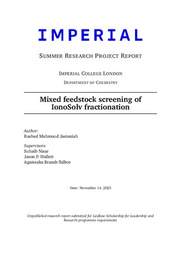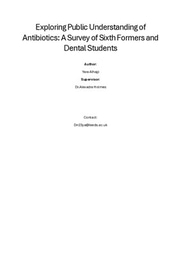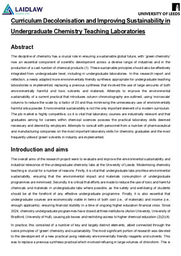Queer Lives: Narrations of Work Abroad (June 4)

My mornings in Bandra are largely the same day to day. Wake up, shower and get ready, and then spend a blissful few moments drinking a hot cup of chai in the living room, perched cross-legged on the windowsill or sat at the far end of the dining table. Muffled jazz plays through a small speaker, and some days, like today, the pitter-patter of rain floats sporadically through the windows. Every few seconds, there’s a jolt of thunder, a deep thrum which settles under my feet.
These minutes, short-lived as they may be, are quickly becoming an invaluable part of my day. The last several weeks have seen, for lack of a better term, complexity: in many ways and in many parts of my life. A family member of mine was recently diagnosed with a terminal illness, which has led to rapid deterioration and required my parents and other family to respond with immediacy to the situation. For six weeks, I’m living in a country which is in many ways still foreign to me. Although I have relatives here, for whom I am extremely grateful, researching and working abroad always requires you to be light on your feet – to adapt to unfamiliar surroundings and settings. Last year, the prospect was nothing but exciting; this time around, although I’m still massively enjoying my time here, there is an additional layer of stress that is, ultimately, uncontrollable. It is the kind of worry you cannot hope to quell completely, but in these few moments in the morning, drinking my tea, I am at least able to sit with it.
I have another full day of work in the office today, so after my breakfast, I grab a taxi and head over to Kalina. It is well and truly monsoon season in Mumbai: water pools in every corner of the road, and traffic builds quickly, dragging a twenty-five-minute drive into nearly fifty. Eventually, though, the car pulls up in front of my office building, and I begin the long elevator ride up to the ninth floor. The rains are far easier to appreciate from here – safe behind a glass window, tracing the rivulets down the panels. It’s oddly comforting, reminding me so vividly of my beloved St Andrews, where it rains most of the year. Although the Fife storms are certainly different from Mumbai monsoons, the morning rains here do remind me of early spring in Scotland, when we often wake up to a downpour.
The day passes in steady routine: I’m working on the same projects as yesterday, and manage to make significant progress on the research matrix. The readings are themselves difficult, though not because they are academically out of reach or always difficult to interpret, but because of the subject they tackle. It’s difficult, at the end of the day, to spend hours reading about how queer individuals in India have been systematically targeted, with so many communities suffering from significant diseases, poverty, and cultural backlash. The prevalence of HIV amongst MSM (men who have sex with men) in India is exponentially higher than the national average, and although the past few years have seen visible progress in the spread of PrEP, HIV testing, and accessible healthcare, queer men are still incredibly vulnerable to HIV and AIDS throughout the country. Indian governments, both at the national and state level, do little to help, as I am told by a colleague.
The Humsafar Trust, which advocates for safe health practices, offers HIV testing and treatment, helps conduct research surveys on the impact of HIV-AIDS on queer communities, and addresses educational gaps in both schools and workplaces, has therefore been foundational to queer advocacy in India for several decades. Founded in 1994, the organisation has been continuous and essential in supporting LGBTQ+ communities around the country. What strikes me, even within a few days of working with them, is how every person I meet describes the organisation – we are, they all say, community. It’s a word I hear often, thrown about in different contexts, but here it is clear that community means something extremely fundamental. I know, from the moment I step foot through the door, that every moment of work is about the people we work for. That goal is grounding, and I sink myself in it, let it guide me.
After a short lunch – thank you, Priya didi, for the rotis and sabzi – it's time to work on designing the outreach survey. I’ve never actually designed a full-length survey before, and the endeavour proves a challenge at first. I’m not sure how best to word my questions, or in what order they should appear. What would be too intrusive, what is too vague? Is it best to ask about monthly income, or yearly income – or should we avoid asking about income altogether? I spend hours trying out questions, deleting them, and rephrasing. Slowly but surely, the survey takes definite shape, thanks to much trial and error – and a helpfully timed intervention from my supervisor.
I head home at five, eager to beat the late-rush traffic, and reach home to a quiet evening. Revathi Auntie and I take a quick walk by the beach, and I listen to her recount old family histories and travel destinations and various words of wisdom, all the while trying not to step out into direct traffic. Asok Uncle is away in a nearby town for the week, in a country home the two of them own, so the house feels far emptier than usual. Still, it gives me and Revathi Auntie the chance to properly catch up over dinner: brilliantly spiced, small cuts of tender fish, a simple dal, rice, and – the star of the show – a bottle of peach-flavoured soju. As I found out yesterday, Revathi Auntie adores soju, so we bought two bottles in preparation for our evening in tonight. Swallowing the drink, which tastes more like juice than anything, we while away several hours sharing stories and watching old clips from SNL.
It’s a moment I can’t quite describe, really. I suppose it’s like the morning tea, or watching the rain fall. It’s impossible to put words to the feeling, so I’ll leave you with the image. The two of us aglow in the dim overhead light, fan buzzing steadily. The glasses are loose in our hands, and I’m reaching to pour another, leaning across the table. We are haloed by a streetlight left on into the early hours of the morning, and we are talking. I could not tell you about what passed between us. I do not think I would want to.





Please sign in
If you are a registered user on Laidlaw Scholars Network, please sign in